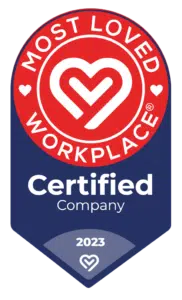20 Engagement Survey Questions You Must Ask
Nurturing employee engagement is paramount for organizational success today. Companies increasingly recognize that a highly engaged workforce is more productive and contributes significantly to innovation and overall business growth. To navigate this terrain effectively, organizations deploy comprehensive engagement surveys, strategic instruments that delve into the intricate facets of the employee experience.
These surveys go beyond mere data collection; they serve as powerful tools for gaining profound insights into the workforce’s sentiments, motivations, and expectations. By understanding the nuances of employee experiences, organizations can tailor strategies to enhance engagement, job satisfaction, and overall workplace culture.
This article presents 20 essential questions that should find a place in your engagement survey, each designed to uncover critical insights and inform effective employee engagement strategies.
Table of Contents
1. Onboarding Experience
Question: How would you rate your onboarding experience when joining the company?
Importance: A positive onboarding experience sets the tone for an employee’s journey, influencing their initial impression, satisfaction at work, and long-term commitment to the organization.
2. Communication and Transparency
Question: Do you feel adequately informed about company goals and changes?
Importance: Transparent communication builds trust, fosters a sense of inclusion, and ensures that employees are well-informed about company goals and changes, contributing to a positive workplace culture.
3. Leadership Effectiveness
Question: How would you rate the effectiveness of leadership in the organization?
Importance: Understanding perceptions of leadership effectiveness provides insights into employee trust, confidence, and alignment with the organization’s vision, influencing overall morale and commitment.
4. Professional Development
Question: Do you feel the organization supports your professional development?
Importance: Employee growth is linked to job satisfaction and retention. Assessing professional development needs helps tailor programs, showing commitment to individual career advancement.

Building a Thriving Workplace Culture!
Discover how to leverage the right technology and implement a proactive strategy that cultivates talent and facilitates team collaboration.
5. Work-Life Balance
Question: How would you rate your work-life balance on a scale of 1 to 10?
Importance: A healthy work-life balance directly impacts employee well-being, reducing burnout and turnover while promoting productivity, job satisfaction, and overall organizational success.
6. Recognition and Appreciation
Question: How often do you feel recognized or appreciated for your contributions?
Importance: Recognizing contributions boosts morale and engagement. Regular appreciation fosters a positive atmosphere, encouraging employees to go above and beyond.
7. Company Values Alignment
Question: How well do you think your values align with the company’s values?
Importance: Shared values create a sense of purpose, aligning employees with the company’s mission. It enhances commitment and cohesion, creating a solid and unified organizational culture.
8. Team Collaboration
Question: How would you rate the effectiveness of collaboration within your team?
Importance: Effective teamwork is crucial for productivity. Identifying collaboration challenges helps address communication gaps, promoting a harmonious and efficient working environment.
9. Inclusivity and Diversity
Question: Do you believe the company fosters an inclusive and diverse workplace?
Importance: Fostering inclusivity and diversity enhances creativity, innovation, and employee satisfaction. Asking about it signals a commitment to creating a fair and equal workplace.

10. Employee Well-being
Question: How well does the organization support your overall well-being?
Importance: Employee well-being is integral to performance and retention. Addressing wellness supports a healthy workforce, positively impacting productivity and job satisfaction.
11. Job Satisfaction
Question: On a scale of 1 to 10, how satisfied are you with your current job?
Importance: Job satisfaction is a key indicator of employee engagement and commitment. Understanding factors that contribute to satisfaction aids in crafting a positive workplace experience.
12. Feedback Mechanisms
Question: How comfortable do you feel providing feedback within the organization?
Importance: Open feedback channels facilitate continuous improvement. Encouraging feedback empowers employees, contributing to a culture of collaboration and shared responsibility.
13. Career Advancement
Question: Are there sufficient opportunities for career advancement within the company?
Importance: Clarity on advancement opportunities boosts motivation. Assessing perceptions helps refine career development programs, demonstrating a commitment to employee growth.
14. Technology and Tools
Question: Do you have access to the necessary technology and tools to perform your job effectively?
Importance: Adequate tools impact productivity. Assessing technology needs ensures a conducive work environment, promoting efficiency and minimizing frustration.
15. Recognition of Achievements
Question: How often do you receive recognition for your achievements at work?
Importance: Regular recognition reinforces positive behavior. Acknowledging achievements motivates employees, contributing to a culture of success and shared accomplishment.
16. Employee Benefits
Question: How satisfied are you with the current employee benefits offered?
Importance: Employee benefits influence job satisfaction and retention. Understanding preferences helps tailor benefits, showcasing a commitment to employee well-being.
17. Flexibility in Decision-Making
Question: To what extent do you feel empowered to make decisions in your role?
Importance: Empowering employees in decision-making enhances autonomy and job satisfaction. Assessing preferences helps strike a balance, fostering a culture of trust and responsibility.
18. Managerial Support
Question: How effective do you find managerial support in your day-to-day tasks?
Importance: Effective managerial support impacts employee performance and satisfaction. Assessing support levels aids in refining leadership development programs and ensuring practical guidance.
19. Workplace Environment
Question: How would you describe the overall environment of your workplace?
Importance: A comfortable and positive workplace environment is conducive to productivity. Addressing environmental concerns enhances overall employee satisfaction and well-being.
20. Overall Job Engagement
Question: On a scale of 1 to 10, how engaged do you feel in your current role?
Importance: Job engagement is a holistic measure of employee commitment. Understanding contributing factors helps shape strategies to boost engagement, fostering a thriving workplace culture.
Final Word
Asking these 20 crucial questions in your employee engagement survey is not just about gathering data; it’s about fostering a culture of openness, continuous improvement, and genuine care for your workforce. The insights gained from these questions can be transformative, guiding the development of targeted strategies that enhance employee satisfaction, performance, and loyalty.
And, as you embark on the journey to elevate your workplace experience, consider leveraging our Love of Workplace Index ™ at No Cost, a proven tool to improve retention, performance, and engagement by 2-4 times.
Furthermore, why not aim for excellence? Apply to become one of Newsweek Top 100 2024 Most Loved Workplaces® in America, the UK, or globally. Stand out among the best by applying to become one of Newsweek’s Excellence 1000 Companies. Your commitment to a positive workplace culture deserves recognition—let the world know.

Louis Carter is the founder and CEO of Best Practice Institute, Most Loved Workplace, and Results-Based Culture. Author of In Great Company, Change Champions Field Guide, and Best Practices in Talent Management, as well as a series of Leadership Development books. He is a trusted strategic advisor and coach to CEOs, CHROs, and leaders of mid-sized to F500 companies – enabling change and steering employer brand development together with highly effective teams, leaders, and organizations as a whole.



0 Comments